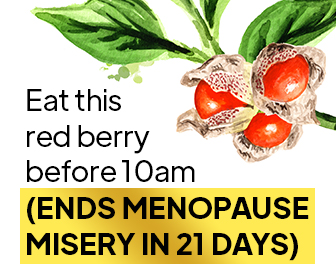Do you know about the potential danger that lies within your own home? Do you realize the many of them can be found in your very own medicine cabinet? Though you don’t want to live in fear, you certainly want to be aware of what is going on. You need to know what could cause health problems or accidents.
Dig deep and really look at what you have in your bathroom, particularly the medicine cabinet. This tends to be the one area of the home that you don’t give much thought. This is a huge problem because this is precisely where the hidden dangers could be. You want to be aware of these risks so that you know what to do on a proactive basis. You want to do your part to minimize these risks, particularly if you have young children in your house.
You Have to Take a Closer Look
You may have made the switch over to better cleaning products. You may have done your part to get rid of any possible toxins in the house. You may have the very best of intentions and yet you could be missing out on the simple things that pose the greatest risk. Many of us have no idea that the medicine cabinet is even an issue. We may use it on a limited basis, which is another reason why it goes to the back of our thoughts. It’s time to start paying closer attention so that these possible hazards don’t fall into the wrong hands.
This is important where young kids are involved, but even for adults it’s an important thing to focus on. You may be doing things, consuming things, ingesting things, or using these each day that could very well put you at risk for developing health problems down the line. They may contain harmful ingredients that have risks not even fully explored yet.
As you explore this issue, here are a few of the things that you really want to be aware of. These are the hidden dangers and the products that could lead to dire consequences if you’re not more careful. While some of these risks may seem a bit unusual or out of reach, think about how often you use these toiletries and products. You just might want to reexamine things, what you use, how you use them, how you store them, and what you can do to minimize any risks now or in the future. These are the greatest health hazards dwelling in your medicine cabinet [1], and what you need to pay closer attention to.
1. Expired Medication
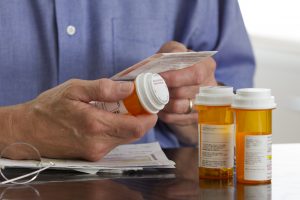
This one may not come as big of a shock as others on the list. You probably already know that every medication you take has some sort of expiration date – that date isn’t just a recommendation. Any medication you take will lose its effectiveness when you get past that date, but the problems don’t end there.
Another issue with expired medication is that it is accessible and easy to abuse or misuse. You could use it unnecessarily, others may take it that don’t need it, and of course there’s the risk of substance abuse in extreme cases. Sure, these risks are more minimal and indirect, but they are definitely something to consider. If it’s there then there’s always the risk that you could take it when you don’t need it or that others may do the same. It’s just not worth it, so dispose of it properly!
One final consideration is why you have the expired and leftover medication in the first place. If it’s an antibiotic, that typically means that you didn’t follow the proper process for treatment. You shouldn’t even have any leftover or expired medication if you took it the way that it was intended. If your doctor gave you medication, you should follow the orders and use it appropriately. You shouldn’t have much in the way of expired or leftover medication, so using it properly is a great and important first step.
2. Mouthwash and Toothpaste
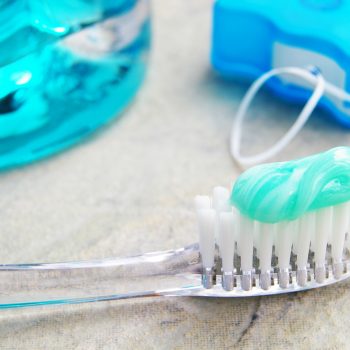
This is perhaps the biggest shock on the list, and with good reason. What could possibly be the problem with using these products? Everyone from children to senior citizens brush their teeth daily and may also use mouthwash. So, how could these products have so much wrong with them? How could they risk your health or put you in danger of future problems? It’s time to look beneath the surface to understand the legitimate and significant risks.
There are some potentially harmful ingredients found in both toothpaste and mouthwash. They may be in minimal amounts, but they may also be toxic over a long term of consuming them. Though you aren’t swallowing these potential toxins, they can still be absorbed into your bloodstream. As a matter of fact, your mouth is a quick absorber in general. So, when you take in these potential toxins over a long period of time and they are absorbed, this is when the problems occur.
If you really look closely both toothpaste and mouthwash contain quite a few additives. Those are the potential toxins and why you need to be more selective on the ingredients that you use. There are some “cleaner” products out there which you may consider trying. You must also consider that mouthwash may have a fair amount of alcohol which isn’t desirable either. The ingredients in both products could lead to health problems, which is why you want to go for a cleaner version, make your own, or be very careful in your overall usage and minimize the swallowing or absorption wherever possible.
3. Talcum Powder
This is a bit harder to understand, perhaps because there is some controversy surrounding it. There was a lawsuit a few years back because it was found that there may be a link between talcum powder and ovarian cancer. The risk may be minimal, but there was enough evidence to suggest that it’s a possibility. This may seem impossible, for you usually use it in such a small amount. The evidence, though limited, was hard to ignore and is something to consider.
The argument is that talc in general may do more harm than good. If prolonged use of the talc in powder could pose a risk, why not go with something else? It is a consideration and there are other products out there which could offer the same benefits without the risks. You want to be sure that you understand if it is pure talc and if there are other fillers. Every bit of this is important to understand where your safety is concerned.
Think of how and why you are using talcum powder. If you use it on a baby, find another alternative. If you use it to stop sweating or something of that nature, then go to a better healthier alternative. There may not be a lot known, but the risks make it essential to evaluate if it’s really that important. There are other powders and products that can offer the same benefits without the tie or risk of ovarian cancer. So choose wisely and avoid this as much as possible.
4. Wipes
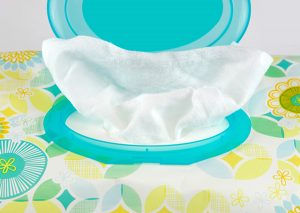
These are so easy and so convenient to use that it’s no wonder we all have a pack of them. You may start using them with your baby and then find that you can’t live without a pack in the car and at home. Sure, they are great to use in a pinch and they clean just about anything off of clothing or skin but have you ever really stopped to think about how they work that well? Have you ever really analyzed what the ingredients were or what made them so effective? This is where you must really do your job to protect yourself where hidden hazards are concerned.
The problem with wipes is that many of them contain ingredients that could lead to an allergic reaction. This reaction can be very similar to that of poison ivy exposure, so you know it’s very serious. It is also believed that this could potentially lead to allergies down the road. So the risks are very possible now and in the future. That means that you want to be very careful about exposure and how frequently you are using the wipes as well.
The good news is that a lot of wipes are now made differently and don’t contain these potentially harmful ingredients. The risk is still present, but it is much less than it used to be. You have to be in tune with what you are using on your skin.
If an allergic reaction occurs you want to stop using it. Though wipes may be convenient, they certainly aren’t worth the risk. If you get red or inflamed skin then stop using them. Above all be sure that you are aware of what is contained within and get rid of old ones that may have the harmful ingredients in them.
5. Toothbrushes
How can this be possible? How can the very thing that you use to clean your teeth be a problem? Can’t you trust a toothbrush to help you keep your teeth healthy and clean? The problem arises when you can’t think of the last time you properly cleaned your toothbrush. If you’re being really honest, you may have never even cleaned your toothbrush at all. It may seem hard to believe, but this one instrument could be giving you more nasty germs than it is actually taking away.
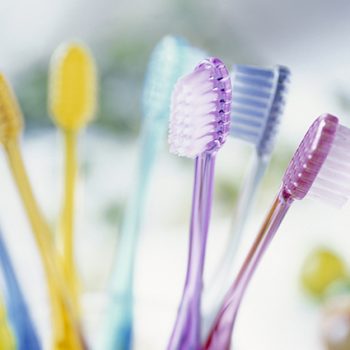
When you consider hidden hazards in your bathroom, the toothbrush ranks high. First and foremost, the reality is that most of us don’t wash or cleanse them properly. That means that the plaque, food, and germs that you are getting off your teeth remain on your toothbrush. If you never clean it, then they remain there and you are basically reinserting those gross germs every time you brush your teeth.
You may be making your teeth worse, especially where something like plaque is concerned. If you are using a dirty toothbrush as so many of us are, then you’re just rubbing things around. You are never getting rid of the plaque, the germs remain, and therefore you aren’t doing anything to clean your teeth. Add to that the fact that many people don’t swap out their toothbrush as often as they should. You are adding so much that you don’t want on your teeth and putting yourself at risk.
Over time those germs can make you sick. You may put yourself at risk for plaque buildup and even gum disease if you aren’t properly cleaning your brush. You may just be using the same dirty instrument, and so this is going to get you nowhere. Wash your toothbrush at least once a week, swap it out for a new one at least every six months, and be conscious if it seems like it’s not clean or getting the job done anymore. The cleaner that brush is, the more effective it and the less likely it could make you sick — all of this matters greatly where your health is concerned!
Fun Fact: Long expired antibiotics can contribute to increased antibiotic resistance and treatment failure.
Summary: What Should You Do Now?
Now you know just what can happen when you aren’t aware of what dwells in your medicine cabinet and you know firsthand what to be on the lookout for. By simply cleaning out your medicine cabinet more frequently, you can help to minimize the hazards. You can also ensure that you stay safe with the products and tools that you use every single day. It really is that important!
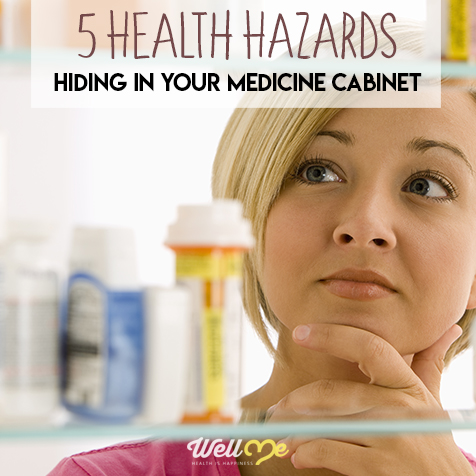
Action Steps: Tips for Avoiding Health Hazards in Your Medicine Cabinet
- Take inventory of what is in your medicine cabinet
- Get rid of expired medication or any products with potential toxins
- Clean your toothbrushes or other dental tools regularly
- Avoid using products that pose as potential hazards
Though some of these may come as a shock, now you have the power to do something about it. Though your bathroom medicine cabinet may have been dangerous before, you can get it all sorted out and safe again. Be aware of what you have in there, clean it and organize it regularly, buy products that are safe, and always take care of yourself with the best and cleanest products. If you can focus on these guidelines then you will avoid any possible health hazards in the bathroom — and this all contributes to better health now and in the future as well.
References
- [1] 5 Sneaky Health Hazards That Are Lurking In Your Medicine Cabinet Prevention https://www.prevention.com/health/medicine-cabinet-health-hazards/slide/1
- Fun Fact Source: 8 Facts About Expired Medications eMed Expert http://www.emedexpert.com/tips/expired-meds.shtml


